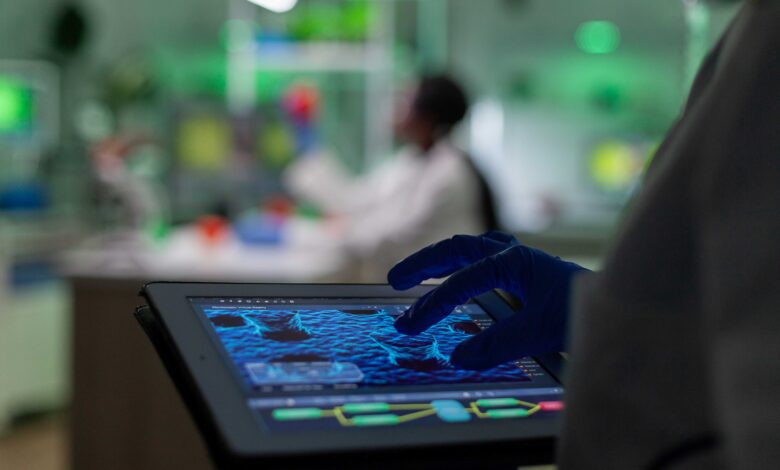AI Revolutionizes Drug Development: Small Biotechs Stand Independently?

As AI reshapes the landscape of drug development, smaller biotech firms are finding ways to thrive without relying heavily on Big Pharma. The rise of AI offers opportunities not just for major pharmaceutical companies to cut costs and accelerate discoveries, but also for agile biotechs to assert their independence, as highlighted in a recent report by S&P Global Ratings.
In recent years, Big Pharma has invested significantly in AI and formed partnerships with tech firms. According to Boston Consulting Group, the value of AI in the pharmaceutical sector is projected to soar from $1 billion in 2022 to an astonishing $22 billion by 2027. Initial investments focused heavily on machine learning applications; for instance, Pfizer collaborated with IBM Watson in 2016 to enhance drug discovery processes, while Merck & Co. and AstraZeneca teamed up with Amazon Web Services in 2017 to create a cloud-based platform for drug development.
These collaborations have given rise to a new generation of AI-driven biotech companies. While many of these entities are still partnering with established pharmaceutical firms to manage high development costs, they also possess the potential to operate independently and disrupt the market with innovative treatments.
The report suggests that the relationship between AI-focused biotechs and Big Pharma may not be mutually beneficial. With their substantial innovative potential, these biotechs could emerge as competitors to traditional pharmaceutical giants, challenging their research and development operations.
Several biotechs are already demonstrating success with AI-discovered drug candidates, both with and without support from Big Pharma. For example, Lantern Pharma is advancing multiple drugs in clinical trials identified through its AI platform, while Insilico Medicine boasts 31 programs and several licensing agreements for AI-generated candidates.
The Impact of AI on Drug Development
S&P Global does not foresee an immediate surge in blockbuster drugs due to AI; however, it predicts a significant reduction in the drug development timeline. Traditional discovery and preclinical phases can take four to seven years, but AI could cut this period down to just two to three years. Clinical development timelines may also shrink, potentially reducing the current seven to nine years to three to five.
This acceleration could help independent biotechs tackle the high costs associated with drug development, which averaged $2.3 billion from discovery to launch between 2022 and 2023, according to Deloitte.
With an expected compound annual growth rate of 85% for the global pharma-AI market, AI’s influence is set to grow. However, the benefits may be gradual and incremental, as full investment returns will take time to materialize.
Despite the promise of AI, drug discovery remains a challenging and time-consuming endeavor, characterized by trial and error. The report emphasizes that whether aided by AI or not, the path to successful drug development is fraught with complexities and setbacks.
As AI platforms enable pharma companies to tackle more intricate diseases, these challenges could extend development timelines and increase resource demands, according to S&P.
Source: https://www.pharmavoice.com/news/ai-transforms-drug-development-biotech-pharma/729241/





